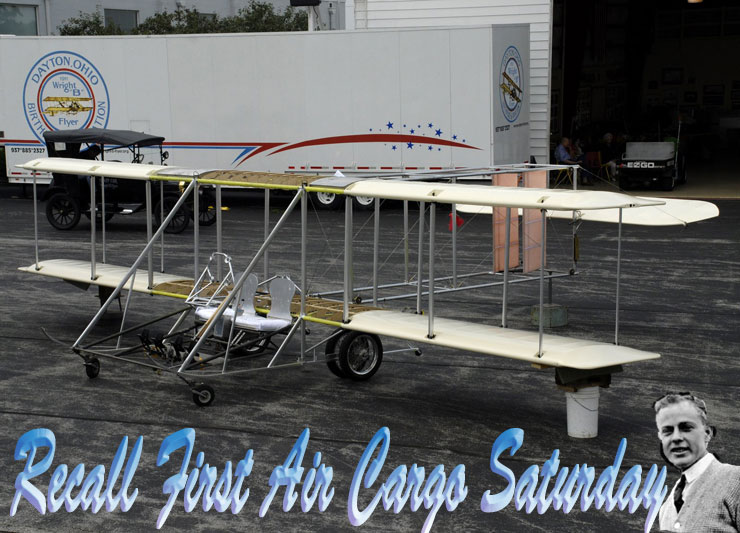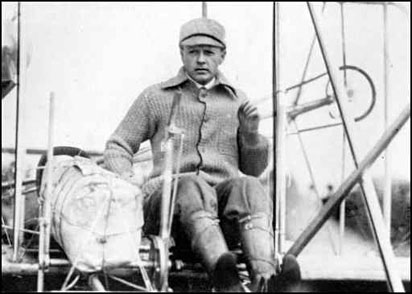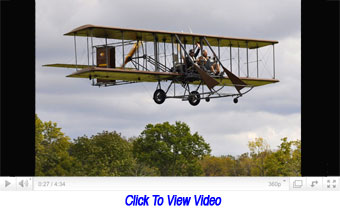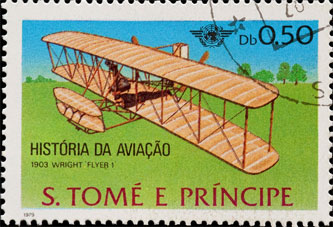
 It
seems air cargo price fixing had its real origins one hundred years ago.
The idea was initially sparked when a Columbus, Ohio merchant by the name
of Max Morehouse recognized the public interest in “flying machines”
and struck a deal with the brothers Orville and Wilber Wright to transport
200 pounds of silk from Dayton to his dry goods store in Columbus. It
seems air cargo price fixing had its real origins one hundred years ago.
The idea was initially sparked when a Columbus, Ohio merchant by the name
of Max Morehouse recognized the public interest in “flying machines”
and struck a deal with the brothers Orville and Wilber Wright to transport
200 pounds of silk from Dayton to his dry goods store in Columbus.
Recognizing the value of their invention,
the Wright brothers charged Morehouse $5,000 to deliver the cloth.
Today’s equivalent value of the air cargo charge would exceed $120,000.
Morehouse more than recovered his money for the flight by selling small
pieces of the legendary silk attached to a postcard celebrating the world’s
first cargo delivered by airplane.
A young man named Phil Parmelee (above and
inset) piloted the Wright B. Flyer on November 7, 1910.
He made the historic, 62-mile flight in
62 minutes, flying from Dayton to Columbus, his speedy arrival exceeding
the expectations of all those who waited for him – as a result,
only about 1,000 people saw him land.
Shortly thereafter, the crowd grew to around 4,000.
Those 200 pounds of silk cloth, traveling
less than 100 miles, launched an industry that spans the globe, moving
millions of tons of air freight each year.
 Mitch
Cary, President of Wright B. Flyer Inc., will pilot a replica Wright B.
Flyer on Saturday, October 2, with the flight retracing that epic first
air cargo journey. Mitch
Cary, President of Wright B. Flyer Inc., will pilot a replica Wright B.
Flyer on Saturday, October 2, with the flight retracing that epic first
air cargo journey.
“We intended to celebrate the significant
accomplishments of the world’s first air cargo pilot Phil Parmelee,
in addition to the start of the air cargo business.
“Phil Parmelee flew this historic
flight with little experience and training, having flown for the first
time just two months prior to making the flight,” explained Cary.
“He was responsible for a number of
firsts and endurance flights in those early days of aviation.
And unlike our planned flight, where we
will have two pilots to share flying duties, Phil flew his flight alone.”
 A
descendant of the Wright brothers, Amanda Wright Lane will attend the
reception in Columbus on October 2. She explained: A
descendant of the Wright brothers, Amanda Wright Lane will attend the
reception in Columbus on October 2. She explained:
“The flight was just one part of Uncles
Orv and Wilbur’s effort to promote aviation,”
“While they recognized their airplane
might not be able to carry heavy loads, they knew the speed of flying
was important in delivering certain types of cargo.”
Parmelee family members Philip McKeatchie
and his sister Lecia Lamphere have preserved the story of their great
uncle’s famous flight.
“Uncle Phil was told by Orville Wright,
as he tacked a map to the wing strut just prior to take-off, ‘watch
the map and do your best.
“In spite of cold temperatures and
flying solo, he did his best, and made history with what was not just
the first air cargo flight, but also the first commercial flight in the
world of aviation.”
Geoffrey/Flossie
|





